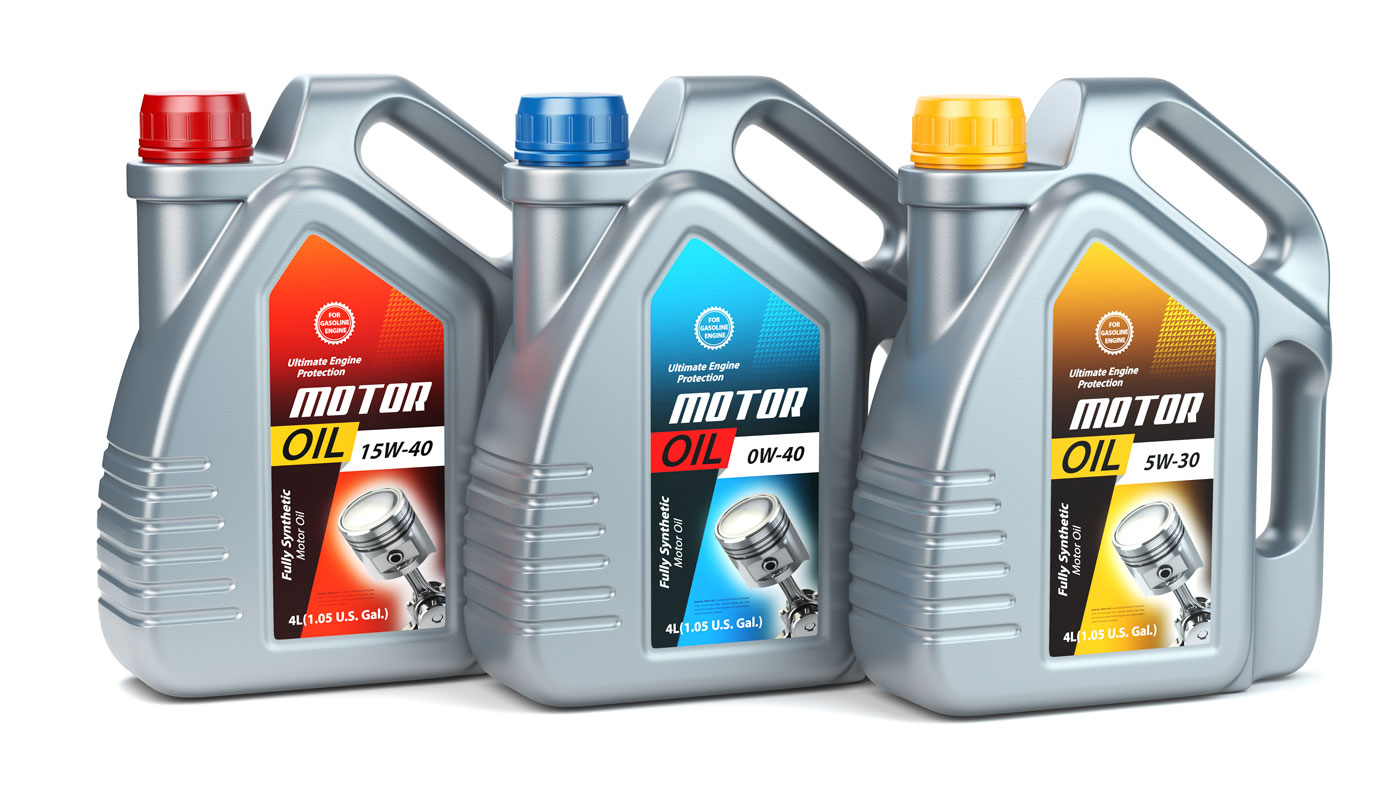Need More Maintenace Tips?
We put together a useful preventive vehicle maintenance guide so you can be knowledgeable about your car or truck’s operation. Check it out for free.
Get the ins and outs of oil types, how often you should change your oil and what kind your car should use.

Engine oil is critical to your car or truck’s maintenance, but other than changing the oil now and then, we seldom give it much thought. Knowing a few simple facts about it is good for both you and your car.
Are you ready to slide into some typical questions people have about motor oil?
Conventional oil is made from refined and thinned crude oil. Synthetic engine oil also starts from crude oil, but its components are chemically altered to provide better lubrication for your car's engine.

Because motor oil thins as it heats and thickens as it cools, it’s rated for two temperatures. The first number (followed by a “W,” for “winter”) is the viscosity at 0° F; the second is the viscosity at 212° F. Viscosity is the overall thickness (or weight) of the engine oil and its resistance to flow.
Use the oil viscosity recommended in your owner's manual for the best engine performance.

Taking care of your vehicle's engine is very important, and regularly changing the oil is one of the simplest ways. How often you should change the oil depends on factors like your driving habits, the type of oil and the manufacturer's recommendations. Older cars typically need oil changes every 3,000 miles, but newer cars, especially those using synthetic oil, can go much longer.
Other factors include:
Manufacturer Recommendations: One of the best places to start is your vehicle's owner manual. Older models with conventional oil need an oil change every 3,000 miles or three months, while late models using synthetic oil can go 5,000 to 10,000 miles or longer.
Driving Conditions: The way you drive and the conditions you drive in can greatly affect how often you should change your oil. If you frequently take short trips, drive in heavy traffic, deal with extreme temperatures, tow heavy loads or go off-roading, you might need to change your oil more often. These tough conditions can cause the oil to break down faster, making it less effective at protecting and lubricating your engine.
Benefits of Regular Oil Changes: Regular oil changes offer many benefits, including improved engine performance, increased fuel efficiency and extended engine life. Clean oil reduces friction, helps prevent overheating and removes contaminants that could cause wear and tear.

High mileage oil is recommended once a vehicle reaches 75,000 miles. This type of oil contains special additives to reduce friction, detergents and antioxidants that can help reduce engine wear. In older vehicles, the engine begins to loosen, which can cause oil leaks and rattling noises.
You should check your engine oil level once a month. It’s normal for cars to burn a little oil as they age toward 100,000 miles, but if you’re adding a quart or more between oil changes, you should have your vehicle checked.
New engine oil starts as a clear amber liquid but darkens with each heat cycle. Contaminants also contribute to this darkening. Don't judge when to change your oil by its color alone. Instead, follow the maintenance schedule in your vehicle's owner manual.

Among the advantages of synthetic oil are better low- and high-temperature viscosity performance, increased stability, and less initial drag on the engine for improved horsepower and torque.
Synthetic oil, although typically more expensive than conventional oil, often proves to be worth the expense because of the many benefits it offers to vehicle engines. Some of the benefits include:
Synthetic oils typically provide better protection than conventional oils, but switching back and forth between full synthetic and conventional oil will not damage the engine. Of course, this depends on the current engine condition and the quality of the conventional oil being used.
AAA Members receive a FREE multi-point vehicle maintenance inspection (upon request with any paid service) and 10% off labor (up to $75) at AAA Owned Car Care Centers and AAA Approved Auto Repair facilities.